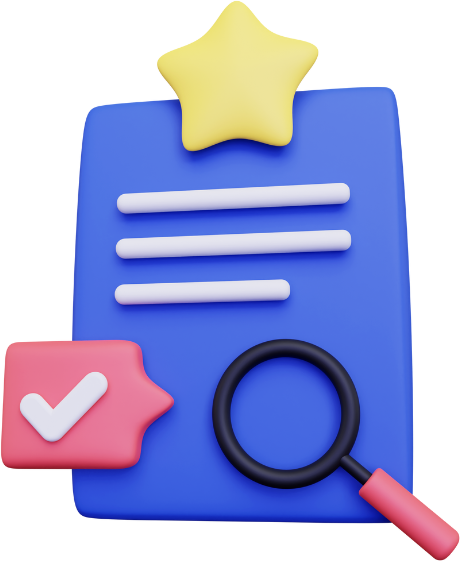Improve your IELTS Vocabulary for better writing and speaking
Improve your IELTS Vocabulary for better essays.
Are you aiming to elevate your IELTS essay writing to new heights? Well, one key to achieving this is by enhancing your vocabulary. In this blog post, we’ll explore the importance of an advanced vocabulary in IELTS essays and delve into how ScoreGetter can guide you in building the linguistic arsenal you need for success.
Transitioning to “The Power of a Rich Vocabulary in IELTS Essays,” mastering an advanced vocabulary is more than just showcasing your language skills; it’s about expressing ideas with precision and nuance. IELTS essay graders specifically look for candidates who can articulate complex thoughts and arguments effectively. Now, let’s delve into why building an advanced vocabulary is crucial:

- Impression on Graders: A rich vocabulary leaves a lasting impression on the examiner. It demonstrates your ability to convey ideas with clarity and sophistication.
- Precision in Expression: An expanded vocabulary allows you to choose the most fitting words for your ideas, adding depth and precision to your writing.
- Varied Sentence Structures: Advanced vocabulary opens the door to diverse sentence structures, showcasing your command over the language and enhancing the overall quality of your essay.
- Scoring Higher Bands: IELTS essays are assessed based on a set of criteria, including lexical resource. A stronger vocabulary contributes significantly to achieving higher bands.
How ScoreGetter Can Help You Build an Advanced Vocabulary
At ScoreGetter, we understand the pivotal role vocabulary plays in IELTS success. Our carefully crafted curriculum and expert guidance are designed to empower you with words that make a difference. Here’s how:
- Tailored Vocabulary Workshops: Our specialized workshops focus on expanding your vocabulary with words specifically curated for IELTS essays. These sessions cover synonyms, collocations, and idiomatic expressions.
- Contextual Learning: We believe in learning words in context. Our instructors guide you through real-world examples, ensuring you grasp not only the definitions but also the correct usage of each word.
- Interactive Learning Environment: Engage in dynamic discussions and activities that encourage the application of new words. This interactive approach makes the learning process enjoyable and memorable.
- Personalized Feedback: Receive constructive feedback on your writing, highlighting areas where an advanced vocabulary can be incorporated. This targeted feedback accelerates your learning curve.
Tips for Building Your Advanced Vocabulary at ScoreGetter
- Read Widely: Immerse yourself in diverse reading materials, from academic journals to literature. Our instructors guide you on what to read to enhance your vocabulary.
- Word Journal: Keep a vocabulary journal. Document new words, their meanings, and example sentences. Review and revise regularly.
- Use Technology: Leverage technology with vocabulary-building apps and online resources recommended by ScoreGetter. These tools make learning convenient and interactive.
- Regular Practice: Consistency is key. Set aside dedicated time for vocabulary practice, whether through workshops, self-study, or interactive sessions at ScoreGetter.
Conclusion: Improve Your IELTS Essays with ScoreGetter’s Vocabulary Mastery
Building an advanced vocabulary is not just a journey; it’s a key to unlocking success in your IELTS essays. ScoreGetter is your trusted companion on this linguistic adventure. Join us, and let’s sculpt your path to excellence, one word at a time. Your IELTS success story starts here!

-
GMAT Coaching
680+ GMAT score is get-able
-
IELTS Coaching
Make the world your play ground
-
OET Coaching
For professional by professionals
-
Study in the USA
USA the land of opportunities
-
Study in Canada
Unleash your potential
-
Study in Australia
World-class Academic Journey
-
Study in France
Education beyond boundaries
-
Study in the UK
Here Education meets Excellence
-
Study in Ireland
Your Gateway to Global Learning
-
Study in Germany
Unlock European Education
-

Helpline: 97910 55567
Guaranteed Admission Process
Sample Wordlist
|
Word
|
Meaning
|
|---|---|
|
1. Plentiful (adj.)
|
Existing in abundance; more than enough
|
|
2. Mirthful (adj.)
|
Full of joy and laughter.
|
|
3. Sincere (adj.)
|
not pretending or lying.
|
|
4. Quizzical (adj.)
|
Expressing or characterized by puzzlement or curiosity.
|
|
5. Lively (adj.)
|
Full of life and energy.
|
|
6. Fragrant (adj.)
|
Having a pleasant and sweet smell.
|
|
8. Spacious (adj.)
|
Having a lot of space; roomy.
|
|
9. Serene (adj.)
|
Calm, peaceful, and untroubled.
|
|
10. Alacrity (n.)
|
Brisk and cheerful readiness.
|
Elevate your IELTS preparation by incorporating our meticulously curated wordlist.

ScoreGetter, best among top10 IELTS Coaching Centers
ScoreGetter, the best among top 10 IELTS coaching Centers
Unlocking Success: ScoreGetter Tops the Charts as the Best IELTS Coaching Center in Chennai
Embarking on your IELTS coaching journey in Chennai? The choices can be overwhelming with a myriad of coaching centers claiming excellence. However, among the top 10 IELTS coaching centers in Chennai, ScoreGetter stands head and shoulders above the rest, earning its stripes as the best in the business.
So, what sets ScoreGetter apart in this competitive landscape? Let’s unravel the secrets that make ScoreGetter the undisputed champion among IELTS coaching centers in Chennai.

-
GRE Coaching
Target GRE score of 320+
-
GMAT Coaching
680+ GMAT score is get-able
-
IELTS Coaching
Make the world your play ground
-
OET Coaching
For professional by professionals
-

TOEFL Coaching
Elevating Your English Proficiency for Global Success!
Comprehensive Cambridge Resources: ScoreGetter goes beyond the ordinary by providing students with an arsenal of comprehensive IELTS resources, including Cambridge books (1-15). Furthermore, this commitment to utilizing official and proven study materials ensures that students are well-equipped for the actual exam.
Personalized Guidance from Certified Instructors: At the heart of ScoreGetter’s success is its team of IELTS-certified instructors. These experts not only hold master’s degrees in English but bring a wealth of experience to guide students through their preparation journey. Moreover, the personalized attention and feedback from these seasoned professionals make ScoreGetter a cut above the rest.
Innovative Teaching Techniques: ScoreGetter prides itself on innovation. The coaching center employs cutting-edge teaching techniques to make the learning experience engaging and effective. From interactive sessions to real-time practice tests, students are exposed to a dynamic learning environment that mirrors the actual IELTS exam conditions.
-
SAT Coaching
Your Pathway to High Scores and Academic Triumph!
-
PTE Coaching
Elevate Your English Proficiency, Achieve Success
-
USMLE Coaching
Success with Expert Coaching and Proven Results!
-

Duolingo Coaching
Your Path to Fluent Communication!"
-

USMLE Coaching
Success with Expert Coaching and Proven Results!

Tailored Grammar and Vocabulary Books: Recognizing the importance of strong language foundations, ScoreGetter provides tailored grammar and vocabulary books. This ensures that students not only understand the nuances of the English language but also develop the linguistic prowess required for success in the IELTS exam.
On-Demand Self-Prep Options: Flexibility is the name of the game at ScoreGetter. Recognizing the diverse needs of students, the coaching center offers on-demand self-prep options. Whether you’re a night owl or an early bird, ScoreGetter adapts to your schedule, putting you in control of your IELTS preparation.
Sectional Tests: To add an extra layer of effectiveness, ScoreGetter integrates sectional tests at the end of every module. These tests serve as a valuable checkpoint, enabling both the student and the trainer to gauge the understanding and identify weak areas. This targeted feedback loop ensures a tailored approach to improvement, making the journey towards IELTS success even more personalized and impactful.
Transparent Mock Tests for Real Progress:
ScoreGetter’s commitment to transparency shines through in its mock tests. Additionally, these full-length practice exams, conducted with innovative techniques, provide students with a realistic preview of the IELTS exam. Moreover, transparent scoring and detailed feedback allow students to track their progress and identify areas for improvement.
Proven Track Record of Success: Numbers don’t lie, and ScoreGetter’s track record speaks for itself. Furthermore, the coaching center boasts a history of success stories, with students consistently achieving their desired IELTS scores. These success stories stand as a testament to the effectiveness of ScoreGetter’s teaching methodologies.
Access to Trainers Until Exam Day: What truly sets ScoreGetter apart is the unwavering commitment to student success. Additionally, with ScoreGetter, it’s not just about the classes; instead, it’s about having access to the trainer until the exam day. This unique offering allows students to clear doubts, seek clarification, and approach the exam with confidence. The continuous support ensures that every query is addressed, every concern is met, and every student steps into the exam hall well-prepared and assured.
Holistic Approach to Learning: ScoreGetter doesn’t just focus on the exam; instead, it nurtures a holistic approach to learning. Moreover, beyond the exam-centric curriculum, students are encouraged to develop essential skills such as critical thinking, effective communication, and time management – skills that extend beyond the IELTS exam and serve them well in their academic and professional pursuits.
In the bustling city of Chennai, where choices abound, ScoreGetter emerges as the beacon of excellence among IELTS coaching centers. With a commitment to innovation, personalized guidance, and a holistic approach to learning, ScoreGetter isn’t just coaching; it’s a transformative journey toward IELTS success. Join the ranks of successful test-takers who chose ScoreGetter as their trusted partner on the road to achieving their IELTS dreams. Your success story awaits!

Understanding the IELTS
Understand the IELTS
“Welcome to our comprehensive and informative guide on the IELTS! This globally recognized test, also known as the International English Language Testing System, is a crucial evaluation for non-native English speakers seeking to study or work in English-speaking countries. It is jointly administered by IDP Education and Cambridge Assessment English.
The IELTS has four distinct modules: Listening, Reading, Writing, and Speaking. These modules each measure different aspects of language proficiency and are scored separately using a band scale from 1 to 9, with 9 being the highest and 1 being the lowest. Now, let’s delve into each module and gain a deeper understanding of the IELTS and its unique scoring system.”
Listening Module:
The Listening component comprises four distinct sections, encompassing a total of 40 thought-provoking questions. In this test, an audio component is featured, which can only be played once. This makes it crucial to attentively respond to the questions as they are being spoken. The auditory recordings feature a diverse range of accents and dialects, spanning from British to Australian and American English. Each candidate’s performance on the listening test is evaluated on a scale of 1 to 9, with a perfect score being 40. This module effectively gauges one’s aptitude to grasp key concepts, detailed information, and vocalized opinions of the speaker.

Reading Module:
Are you ready for the challenge? The IELTS reading module of this exam is broken down into three sections, each containing 40 questions in total. These questions will test your ability to comprehend passages from various sources such as journals, magazines, newspapers, and books. But here’s the catch – the test is adaptive, meaning the questions will get progressively harder as you advance. It’s not just about getting a high score, it’s about pushing yourself to do your best! You’ll have 60 minutes to complete all the questions and achieve a perfect score of 40. However, don’t worry if you don’t get a perfect score, as the resulting score band can range from 0 to 9. This reading component is specifically designed to evaluate your grasp on key concepts, accurate details, and expressed viewpoints within the given passages. Are you excited to show off your reading skills? Let’s get started!
Writing Module:
The IELTS Writing module consists of two tasks: Task 1 and Task 2. Task 2 entails writing an essay on a given topic, while Task 1 involves describing a diagram or graph using your own words. Be sure to manage your time wisely as you will have 60 minutes to complete both tasks. Your writing performance will be evaluated on a scale of 1-9, taking into consideration four key areas: coherence of ideas, word usage, grammar usage, and task completion. It’s worth noting that grammar proficiency is crucial in achieving a high score. Thus, it’s essential to skillfully organize and articulate your ideas and perspectives in the writing section.
Why take the IELTS Exam?
Investing in taking the International English Language Testing System (IELTS) can greatly benefit your future prospects. It serves as a worldwide standard for evaluating your proficiency in English, highly valued and utilized by more than 10,000 businesses worldwide to gauge language abilities. You can trust in the credibility and authenticity of this exam. Additionally, the IELTS offers a unique chance to showcase your commitment to enhancing your language skills, allowing you to demonstrate your proficiency in real-life situations. Undoubtedly, these benefits make IELTS a valuable asset for individuals seeking career advancement.
The best way to prepare for IELTS

The best way to plan and prepare for the IELTS.
As we know how stressful it may be to think about where to even start while preparing for the IELTS, we have compiled a list of helpful tips to help you start your IELTS preparation. As this is the best way to prepare for IELTS.
Understand the exam and its format.
You must have a solid understanding of the test’s structure before you prepare for it with practice questions. Review the test’s content, including the questions and tasks you may expect to see, to get yourself acquainted with the exam.
Keep in mind that knowing the structure of the test is crucial to doing well on any test, not just IELTS.
Know the timings of the IELTS exam.
The more you know what to expect from the format of the test, the more likely you are to finish it in the allotted time.
As a matter of fact, the best way to know the pace of the test is to practice under timed conditions.
Because the IELTS exam has a time limit and you will only have so much time to complete each section. If you find that the time constraints prevent you from focusing on each module individually, or if you find you need more time overall to finish the course.
Keeping this in mind, to get you acclimated to the speed of the IELTS exam, all the practice that you do with ScoreGetter’s IELTS preparation course follows the same time format as the real test.
Understanding the English Language better with IELTS Strategies
Overemphasizing the importance of the IELTS exam is a common error among students. They spend a lot of time practicing for the IELTS but don’t put any effort into bettering their English.
Moreover, many students in Chennai who are preparing for the International English Language Testing System (IELTS) either don’t realize they are at an intermediate or lower level of English proficiency or have forgotten that IELTS is a test of English language competence. So, you’d better have a solid grasp of the English language.
Learning IELTS is a process, so be patient with yourself. If you want to go up one score band, it will take you around 2 weeks.
Start your preparation for your exam at least 3 to 4 months before it’s scheduled to take place. If you want to improve your English and score higher on the IELTS, you can enroll with ScoreGetter, which offers such services.
Developing your Reading Skills
The reading section will assess a range of reading abilities. Skimming, scanning, capable of absorbing the information, recognizing the author’s point of view and intent, and so on.
You need to respond to a variety of question types, including multiple-choice, true/false, matching, complete sentences, complete diagram labels, and match headings.
Make sure that your practice tests contain questions from a wide range of topics so that you can build familiarity with the different formats.
Timing on Reading Section
Timing is very important in the reading module, and you won’t have time to read the texts more than once. You can avoid this by making use of the strategies at ScoreGetter. For instance, you must know how to skim the passage and understand what specific facts you should concentrate on the most.
Use appropriate and assertive language when writing.
Usually, students have the most trouble with the writing section. Formal writing is required for both tasks in the academic IELTS.
Tasks
For Task 1, you’ll need a solid grasp of English and lots of practice expressing and explaining data.
There are a few obstacles to overcome in Task 2. If you know little about the assigned topic, it might be challenging to come up with original ideas. The essay also has to be well-organized.
When preparing for the test, it is important to use the correct terminology when answering Task 1 questions and must have enough practice with all the different graphs (line graphs, bar graphs, pie charts, tables, multiple data sources, processes, diagrams).
Be sure you know how to write an introduction and a conclusion, as well as the basic framework of an essay, before tackling the Task 2 questions. You need to put your thoughts together in natural English. The IELTS is a standardized test, so it’s good to practice and become comfortable writing on a variety of topics.
Speaking
This test has three parts and takes less than 15 minutes. The first 5 minutes are to get to know each other and talk about general things. The second section evaluates the examinee’s ability to speak on a random topic presented on a task card. The last part only makes the second more complicated. The examiner will also evaluate the candidate’s pronunciation, vocabulary, and fluency at this point.
Attempting practice tests.
Take a practice exam to evaluate your preparedness and highlight your areas of weakness. You must understand, this is a vital step in the preliminary preparation process, as it will reveal your areas of strength and areas for improvement. As a result, developing a strong foundation for the test requires focusing on both strengthening areas of weakness and expanding on areas of strength.
However, If you have trouble avoiding or even identifying these issues, in that case, seek the help of an expert. Taking an IELTS preparation course will be the best solution for most test-takers since it is one of the simplest methods to approach the test and the best way to prepare for the IELTS.
FAQ's
Those whose native language is not English but who intend to visit, live in, or work in a place where English is the country's official language of communication. The International English Language Testing System (IELTS) is valuable for both immigration and higher education.
More than 11,000 entities in almost 140 countries throughout the world recognize IELTS test results, including companies, governments, and educational institutions. Moreover, officials in charge of issuing visas and enrolling students at universities throughout the world use the International English Language Testing System (IELTS) to assess their applicants' English language skills.
The exam fee for the IELTS is Rs. 15500. You can choose between computer delivered or the per and paper IELTS exam format.
Your answer to that question relies on the university of your choice. The minimum acceptable IELTS or TOEFL score varies per institution. The minimum acceptable score for English proficiency can be read on the admissions criteria page of the websites of the universities to which you are applying.
For instance, if your IELTS result is less than 6.0, you may choose to take the exam again. The minimum acceptable score on the International English Language Testing System (IELTS) for admission to the undergraduate or post-graduate level at most universities is 6.5, with no band less than 6.0. However, most schools suggest a TOEFL score of 83, which is equivalent to an IELTS score of 6.5.
There are 2 options for IELTS examination. They are, IELTS Academic and IELTS General.
The IELTS Academic exam happens 48 times in a year (approximately 4 times in a month) and IELTS General takes place for 24 times in a year.
However, you must book for the exam at least 3 weeks prior.
Here is the frank and sincere response to your question: A lot rides on the specifics. How well-developed is this individual's command of the English language? To what extent do they find it simple to pick up different tongues? How do they fare in a rigorous, three-hour test? What strategies do they employ when forced to strike up conversations with total strangers? Because everyone of us is unique and approaches the examination with our own set of experiences and perspectives, the answer is ultimately open-ended.
Since the Academic test requires a higher level of English proficiency and a more extensive vocabulary it is the more difficult one to score.
In contrast, the General IELTS test is often understood to be slightly easier to score.
A decent amount of preparation lasting for about 2 to 3 months should help you get you to achieve the score you want.




















